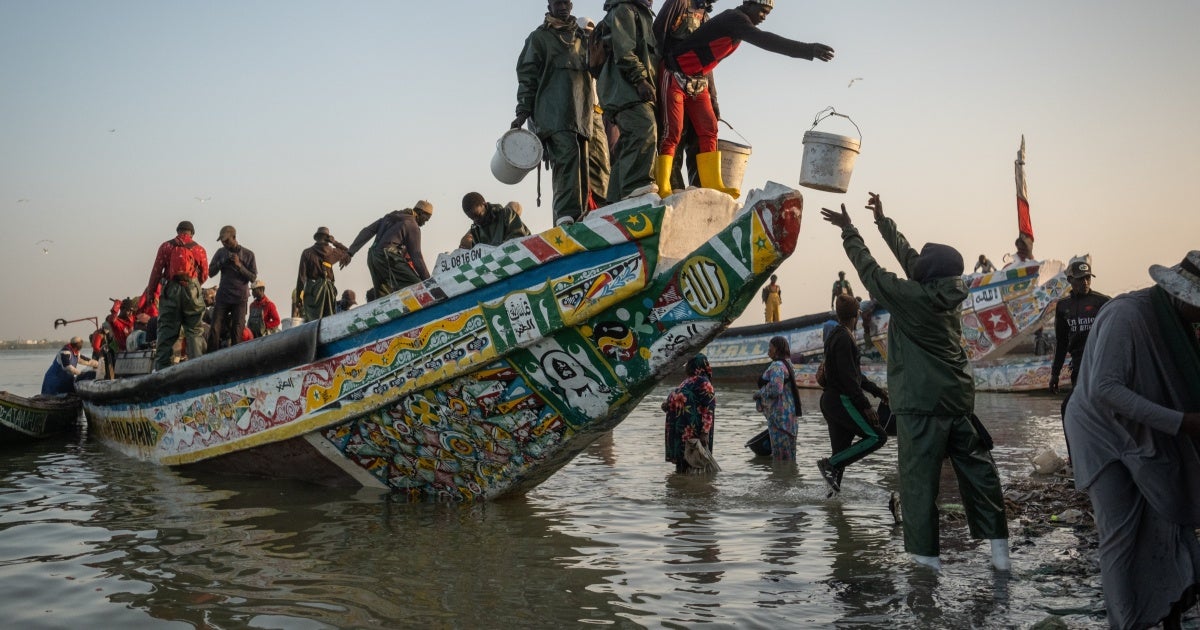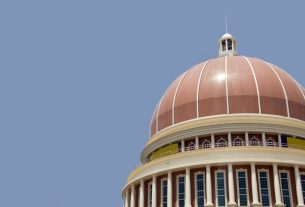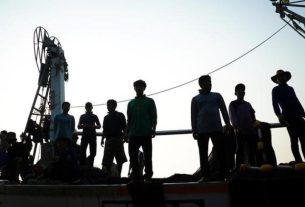- For nine years, in Khar Yalla, authorities have effectively abandoned Senegalese families internally displaced from the Langue de Barbarie peninsula by coastal floods, violating their rights to an adequate standard of living, education, health, and to take part in cultural life.
- Senegalese authorities failed to include these families in a World Bank-funded planned relocation of others from the same communities who were affected by coastal floods.
- Senegal should urgently relocate the families from Khar Yalla to a site where their rights can be upheld, improve their living conditions in the interim, and develop a national policy to safeguard rights in future climate-related planned relocations.
(Johannesburg) – Senegalese people displaced by tidal surges that climate change is making stronger and more common are suffering ongoing human rights violations, with no durable solution in sight, Human Rights Watch said in a report released today.
The 72-page report, “‘Waiting for God’: Flood Displacement and Planned Relocation of Fisherfolk in Saint-Louis, Senegal,” concerns families who lost everything when coastal floods hit their historic fishing communities on the Langue de Barbarie peninsula in 2015 and 2016. They were moved to a site called Khar Yalla, which Senegalese officials acknowledge is unfit for permanent habitation. Authorities have violated their economic, social, and cultural rights through inaction, and left them out of a climate-related, planned relocation benefitting others from their communities.
“Khar Yalla’s story shows that inadequate planning for climate-related relocations can lead to protracted displacement, instead of durable solutions,” said Erica Bower, climate displacement researcher at Human Rights Watch. “Senegal should urgently remedy the rights violations in Khar Yalla and develop policy to ensure that future climate-displaced communities receive adequate support, including through rights-respecting planned relocation.”
Human Rights Watch interviewed more than 100 people, including displaced people, government officials, and experts, and analyzed satellite imagery, academic publications, and documents from the Senegalese government, World Bank, United Nations agencies, and nongovernmental groups.
The approximately 1,000 people who live in Khar Yalla, outside the Saint-Louis city center, come from centuries-old fisherfolk communities on the Langue de Barbarie, which is highly exposed to impacts of the climate crisis. After losing their houses to coastal floods and living for several months in tents, the families agreed to the local authorities’ plan to move them to Khar Yalla in late 2016.
Authorities assured them that it would be short-term and gave them temporary permits to occupy houses constructed for another, failed planned relocation for other flood-prone households.
But the displaced families are still in Khar Yalla, with no essential services and living in conditions that violate their right to adequate housing. There is severe overcrowding, no electricity, and no waste disposal. The site is in a flood zone; during the rainy season, wastewater enters the houses and contaminates the water supply.
The government’s failure to provide essential services in Khar Yalla or connect it to services elsewhere has violated people’s rights to education and health. An estimated one third of children do not attend school; many people have had to forego health care.
Families there also face ongoing violations to their rights to an adequate standard of living and to take part in cultural life. Most households’ incomes have been reduced to levels below the international poverty line for a lower-middle income country like Senegal, and people are having trouble feeding their families. The authorities have failed to respond to these gaps.
Community members are struggling to maintain their fishing livelihoods in the Langue de Barbarie, five kilometers away, given the distance and high costs of taxis and private buses. The loss of fishing livelihoods has negative cultural consequences, too. Fishing “is our whole life,” said one older man in Khar Yalla.
Authorities have also thwarted Khar Yalla leaders’ attempts to retrain people for new professions. “We have no support from the authorities, and when we tried to find our own solution, they stopped us,” said one woman in Khar Yalla.
Moreover, the government failed to include the Khar Yalla families in a permanent, climate-related planned relocation of 15,000 fisherfolk from the Langue de Barbarie to an inland site called Djougop, being carried out through the World Bank-funded Saint-Louis Emergency Recovery & Resilience Project.
Among beneficiaries are over 200 families who were also displaced from Langue de Barbarie by coastal floods, in 2017 and 2018, and then temporarily housed in tents in Khar Yalla. The World Bank and government relocated these families onto Djougop, after determining that Khar Yalla was not a suitable permanent relocation site. But the families displaced in 2015 and 2016 were left behind.
A planned relocation can facilitate a durable solution for those displaced by climate-related disasters but only if its scope includes those experiencing protracted displacement and the planning process respects human rights standards, including meaningful consultation with affected people. There was no such process for the families who moved to Khar Yalla in 2016.
“We’ve asked sometimes if the authorities consider us as human,” said Khady Gueye, a Khar Yalla community leader. Government officials interviewed showed a lack of awareness about Khar Yalla. Some even denied that the families had been displaced by floods.
The Senegalese government is obligated under national and international law to respect and fulfill people’s economic, social, and cultural rights and protect them from reasonably foreseeable risks to rights, including climate change impacts such as risings seas.
Senegal has invested more than many countries to support climate-displaced communities but has unjustifiably left the families in Khar Yalla out of those efforts. “To live up to its goal of being a global leader on climate adaptation, Senegal should stop the human rights violations in Khar Yalla and plan for the future,” said Fatoumata Kine Mbodji from Lumière Synergie pour le Développement.
Senegal should ratify the Kampala Convention to protect the rights of internally displaced people. It should also develop a policy on climate-related planned relocation that includes mechanisms for climate-displaced communities to request support, prioritizes meaningful consultation, and establishes criteria for relocation site selection to ensure beneficiaries’ rights are fulfilled through relocation.
The World Bank should reform its policies as well. Current policies were designed for resettlements carried out in development projects, which are fundamentally different from climate-related planned relocations. New policies should require grantees to identify beneficiaries displaced for the longest periods who need a durable solution.
“Policy shifts from Senegal and the World Bank are urgent because planned relocations will only become more common as the climate crisis accelerates,” Bower said. “Policies should be centered on the rights of those displaced by the climate crisis, like the families in Khar Yalla.”



